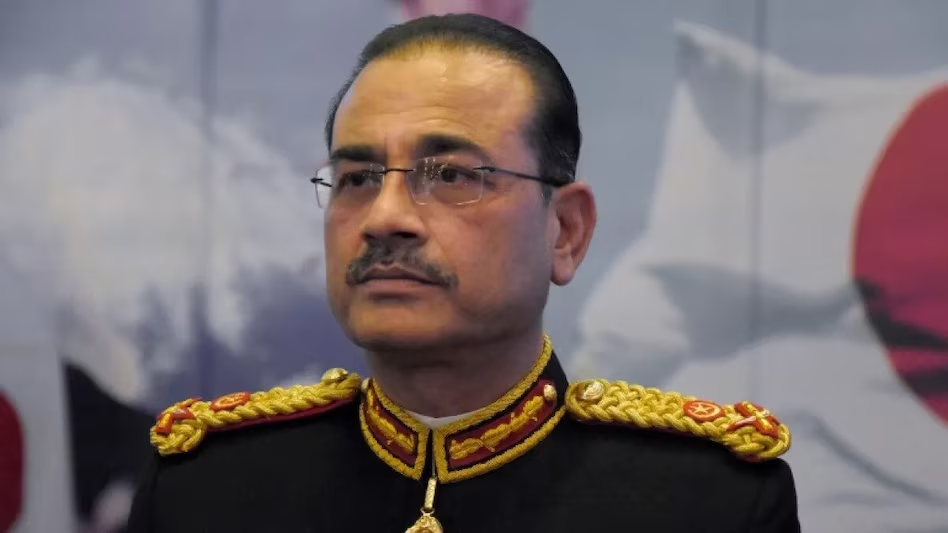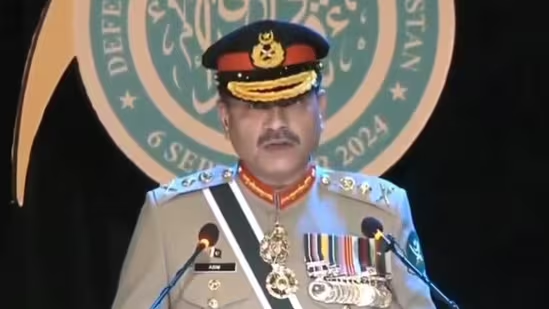| In Short |
| · Pakistan Army’s Historic Admission: For the first time, Pakistan has officially acknowledged its military’s active role in the 1999 Kargil War, previously attributed to Kashmiri militants |
| · General Asim Munir’s Statement: Pakistan’s Army Chief, General Asim Munir, admitted the involvement of regular soldiers, honoring their sacrifices during the conflict |
| · Impact on India-Pakistan Relations: This admission validates India’s long-standing claim of Pakistan’s direct involvement in the Kargil conflict |
| · Pakistan’s Shift in Narrative: This marks a significant shift in Pakistan’s historical narrative, potentially affecting its internal politics and diplomatic relations |
| · Implications for Regional Diplomacy: The admission could pave the way for a reevaluation of India-Pakistan relations, though immediate reconciliation is unlikely |
For the first time in history, the Pakistan Army officially conceded its involvement in the 1999 Kargil War-an ugly silent war that has plagued relations between India and Pakistan for decades. In a startlingly candid admission, Pakistan’s Chief of Army Staff General Asim Munir has now confirmed that the Pakistani military actively engaged in the war-a fact long suspected and finally confirmed, which both astonished and dismayed observers across the world. The statement marked a new light on the sacrifices of Pakistani soldiers, which were previously played down by Islamabad. Hitherto this admission, the Kargil conflict, which was fought in the disputed Kashmir region, had been termed by Pakistan as a guerrilla movement involving militants. Thus, this admission is a complete rewriting of that story.
Pak Admission and its Impact
General Asim Munir’s admitting to an active role played by Pakistan in the Kargil War has, for the first time, contradicted historical moves taken by the country in denying any involvement in the war. So far, Islamabad had generally stuck to the line that the skirmishes were sustained by local rebels fighting for autonomy in Kashmir. That context has dramatically shifted with this latest statement, with Munir making an emphasis on bravery and sacrifice of the Pakistani soldiers. This admission could have repercussions in the political environment of Pakistan and also on its diplomatic relations with India, at times seen by some quarters as an increase in openness and accountability.

Also, General Munir’s words paid respects to the fact that the soldiers died: “Our soldiers laid their lives for the country.” This appreciation points toward the human causality this war inflicted, killing hundreds of soldiers on both sides, and severely straining relationships between India and Pakistan.
Kargil War: A Short Overview
The Kargil War, which took place between May and July 1999, is basically recalled as one of the most important wars between India and Pakistan since the partition in 1947. It occurred when Indian military forces identified the infiltration by the Pakistani soldiers and militants in the Kargil district of Jammu and Kashmir. In response to this, a military response from India aimed at reclaiming its terrain saw heavy fighting on high-altitude grounds with serious casualties suffered on both sides.

Whereas, at that time, Pakistan maintained that the infiltrators were Kashmir freedom fighters. And India vehemently disputed this view, naming them as regular Pakistani troops. Subsequently, under profound international pressure, Pakistan relented and took back its forces, culminating in the repture by the Indian side of occupied territories.
Shift in Narrative by Pakistan’s
The recent admission by the Army Chief of Pakistan thus constitutes a major revision of the historical stance of that country with respect to the Kargil War. During these years, Pakistan had sought to maintain a distance from any official involvement in the war by portraying its case as that of a supporter of the people’s struggle for independence in Kashmir. On the other hand, this admission of direct involvement on the part of the military not only falsifies such a view but also forms a backdoor entry into reassessing Pakistan’s role in the conflict.
This confession has come at a time when Pakistan was in the midst of internal political turmoil. The fall of the economy and political differences may turn this admission into an event of far-reaching repercussions in Pakistan’s domestic policy, as also in its relations with the military. Some analysts say that this has been a tactical move to restore the credibility of and improve the position of the military in this country .
India’s Reaction
India has maintained for long that the conflict at Kargil was indeed an act of military aggression by Pakistan. This recent admission just furthered that argument. Indian media and officials welcome the statement as vindication of India’s stand on the conflict. A section in India has viewed this as vindication of the truth and confirmation of the sacrifices of Indian soldiers while defending their motherland.
However, the admission is unlikely to lead to an immediate thaw in relations between the two nuclear-armed neighbors. The Kargil War remains a sore memory for both countries, and while Pakistan’s new acknowledgment marks a significant turn of events, full reconciliation between the two sides remains seriously bogged down.
A Turning Point in South Asian Diplomacy?
And this game-changing development in Pakistan’s stance may have wider ramifications, too, for regional diplomacy in South Asia. The confession of involvement in the Kargil War may be an indication by Pakistan that it is ready to come to terms with its past, possibly opening the doors to more frank dialogues with India in the years to come. However, much depends upon the way both countries choose to go ahead in the months to come.
There is a great deal of mistrust between India and Pakistan, and the Kargil War is certainly one of the most contentious issues in their bilateral relations. Meaningful progress will require honest discussions on both sides regarding their shared history and in an attempt to resolve the basic issues that keep the tensions between them alive.
Conclusion :
Now, the recent admission of Pakistan to its involvement in Kargil War for 1999 turns out to be a pivotal moment in its narrative of the war. It was sheer bravery on the part of the Pakistan Army to admit its soldiers’ sacrifices by admitting to its involvement in Kargil. This could redefine Pakistan at the comity of nations, but at the same time, it also brings an old question about the probability of harmony between India and Pakistan. Whether this ushers in a new era of diplomacy or further complicates an already fraught relationship, remains to be seen. What is for sure, though, is that this acknowledgement will leave an indelible mark on how the Kargil War is remembered and understood.
For Latest News Updates Click Here
